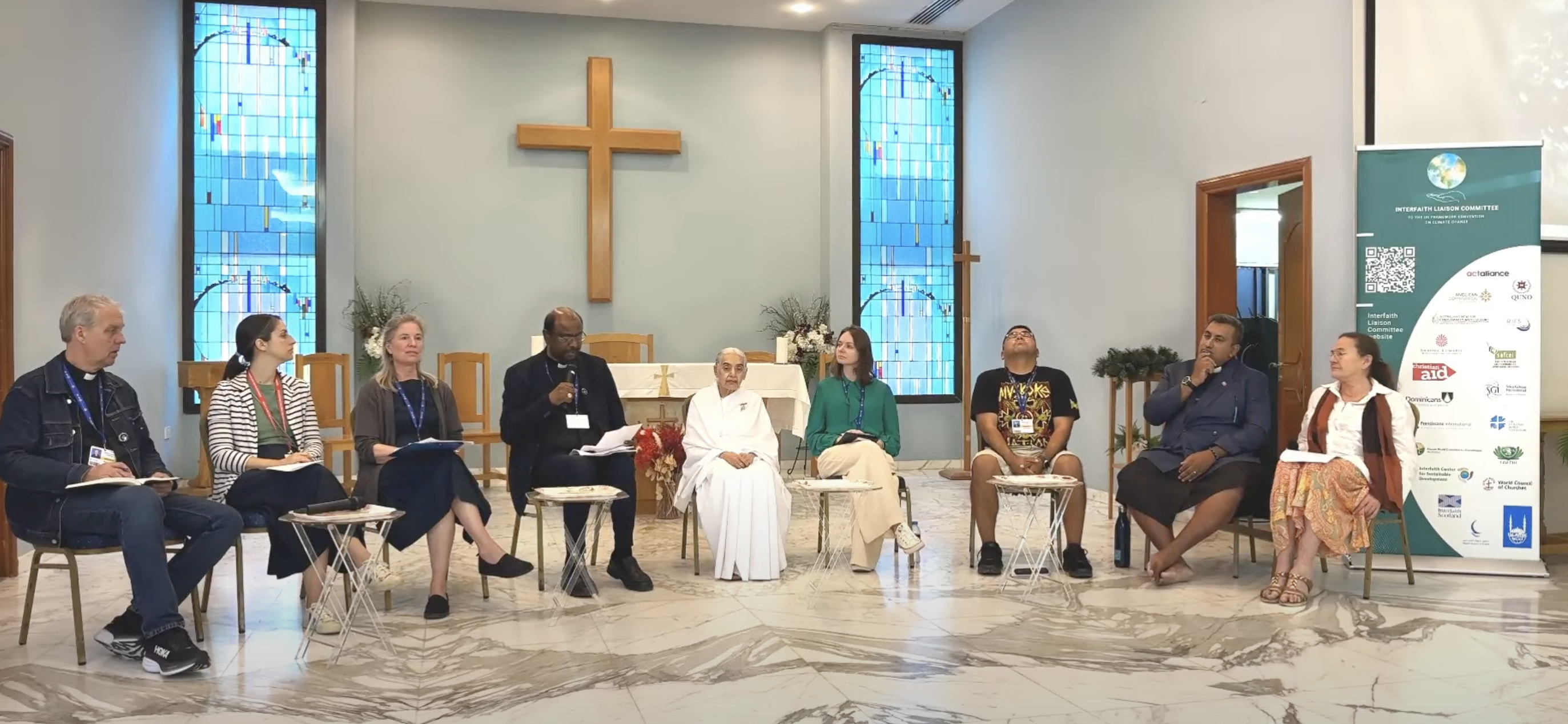Key questions in a talanoa dialogue are: Where are we? Where do we want to go? How do we get there? Diverse communities of faith from all over the world gathered at the Christ Church Jebel Ali in Dubai to ponder these existential inquires—together. "The question is: Why are we here?” asked Pillay, who spoke during a panel discussion that opened the dialogue. “We are here at COP28 to bring the ethical, moral, and spiritual voice on the existential challenge of our generation.” Participants then split into groups for in-depth discussions before sharing main points back in a plenary session. From their discussion, they will present a message to COP28 during the second week of the climate talks. A significant voice The ethical, moral, and spiritual voice is not an insignificant one, Pillay insisted. “It is said that 85% of the world's population identifies with a faith so this means that religious actors can wield considerable influence including in the policy sphere,” he said. “This was demonstrated at the historic Paris Climate Conference (COP21) in 2015, when representatives of 196 countries agreed to take steps to limit global warming to well under 2 Celsius and ideally at 1.5 Celsius above preindustrial levels.” Many leaders in the science and policy communities and in the news media pointed out that COP21 was successful due in part to contributions of religious communities and interfaith activities, including a petition that gathered 1.8 million signatories. “Eight years after the Paris Agreement and with each sobering scientific report from the Intergovernmental Panel on Climate Change (IPCC), it is clear that our governments have been terribly, catastrophically slow to act,” said Pillay. “It is clear that so much more needs to be done.” Communities of faith want to call the world’s leaders to a profound and rapid change of heart. “As people of faith, our role is to lift up the voices of the vulnerable and marginalised (who are least responsible for the climate crisis); and to support and empower those most impacted by climate change and who often know best how to build a more climate-resilient planet,” he said. “This is a matter of justice.” Pillay also believes the role of communities of faith is to convey and nurture hope. “We know what needs to be done and how to do it,” he said. The many people gathered to speak, pray, and promote unity regarded the talanoa dialogue as vitally important. “The talanoa dialogue is crucial for us because it gathers the voices of faith people worldwide and the climate crisis they face,” said Rev. Henrik Grape, WCC senior advisor on Care for Creation, Sustainability, and Climate Justice. “We are in a time when we must phase out fossil fuels as soon as possible, and business interests are trying to prolong the use of fossil fuels.” WCC special page on COP28 As COP28 begins, faith communities stand ready to push for climate justice (WCC news release, 30 November 2023)
Watch the recording of this event WCC executive committee statement on COP28's responsibility for climate justice "Confluence of Conscience: Uniting for Planetary Resurgence" - Abu Dhabi Interfaith Statement for COP28 | 



No comments:
Post a Comment